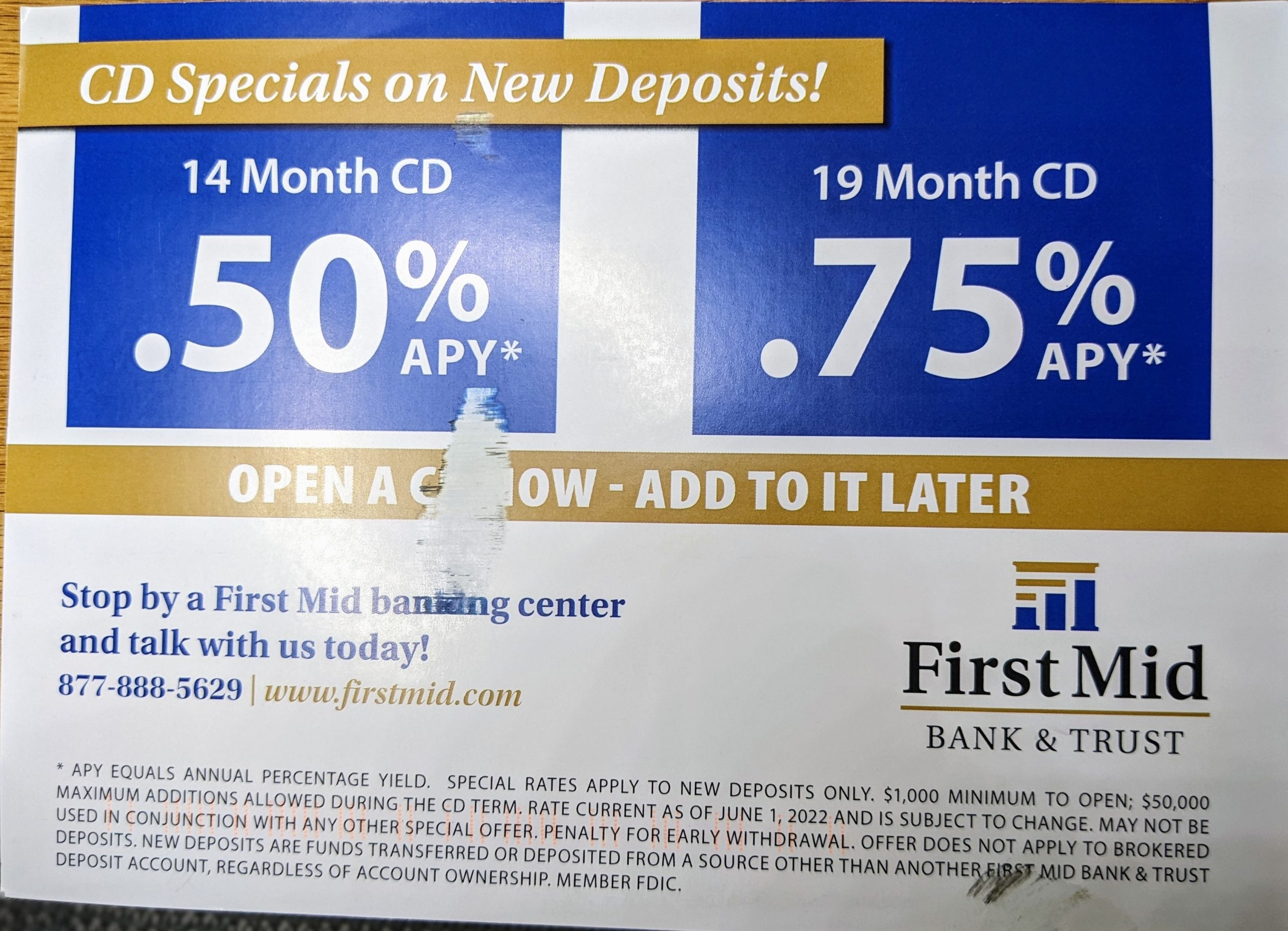I could buy a one- or two- year T-bill paying better than 2.25 percent. So why would I buy a CD paying half or three-quarters percent?


I could buy a one- or two- year T-bill paying better than 2.25 percent. So why would I buy a CD paying half or three-quarters percent?

To this day, this one of my Wise Bread posts remains the one that I think provides the most useful, actionable suggestion, and yet nobody else seemed to appreciate it: https://www.wisebread.com/and-did-you-do-it-with-respect.
“Individuals Living In Rural Areas More Likely To Have Lower Incomes & Assets Than Urban Residents”
Breaking news from the demographics journal “Duh!”
I can’t cancel my Spotify subscription—I never had any interest in subscription-style access to music, so I never signed up.
(Also, as an aside: A podcast is an RSS feed of MP3 files. If it’s not that, it’s not a podcast.)
The new book How to Distill: A Complete Guide from Still Design and Fermentation through Distilling and Aging Spirits may be of particular interest to the fans of my old @wisebread article How to Make Moonshine.
A long tedious pdf from those Davos guys. Only of interest because the topic is near to my heart. I may yet manage to plow through the whole thing, looking for the good bits. Via @bruces.
“The report also sets out how public and private urban leaders can utilise nature to both reduce the impact of their cities on biodiversity, increase their climate resilience, and secure significant economic benefits.”
Source: BiodiverCities by 2030: Transforming cities’ relationship with nature | World Economic Forum
Some decades back I read a pretty good book that advocated for a “guaranteed job” for anyone who wanted one as a better solution to poverty than a “citizen wage” (or any sort of welfare assistance). I don’t remember all the details in the book, but the advantages primarily had to do with preserving the existing social structures around employment.
One question I always struggled with had to do with the strength of the guarantee. Suppose a few percent of the people with such jobs have (as I do) seasonal depression such that they cannot be productive during the winter months. Would the job guarantee permit them to simply show up and get paid, even though they can’t get any work done until spring?
This particular for-instance matters to me, as one who suffers from SAD, but it’s a broader problem—lots of people have some sort of condition, medical or otherwise, that makes them unproductive for long stretches of time. Do they get to keep their guaranteed job? How can you tell them from malingerers? Does it matter? How do you deal with workplace tensions when many perceive their coworkers as not doing their fair share of the work?
These sorts of issues are why I’ve always come down on the side of a universal basic income as a better way to reduce both poverty and the abuses that come along with having a few rich people and a vast class of precarious workers. But I’m willing to give alternatives serious consideration, as long as they work for people like me.
In the latest issue of the agricultural-economics journal “Duh!”
Climate change is a known long-term risk to crops like coffee, chocolate and wine grapes that require specific conditions to thrive.
Source: Coffee bean price spike just a taste of what’s to come with climate change | Coffee | The Guardian
I found similar insights upon returning to Walden, and eventually realigned my own life with my own values.
“This particular class of workers were thrown into their own Zoom-equipped versions of Walden Pond.”
Source: Why Are So Many Knowledge Workers Quitting? | The New Yorker
Here’s an app that would have been worth a low-key post on @wisebread. It has a “Denomination Detector” (maybe for people with impaired vision?) and highlights security features you can use to check that the note is genuine, including a “Tilt Check Simulator” that reveals how the security features of banknotes function when in motion.
Source: Cash Assist Mobile App | U.S. Currency Education Program